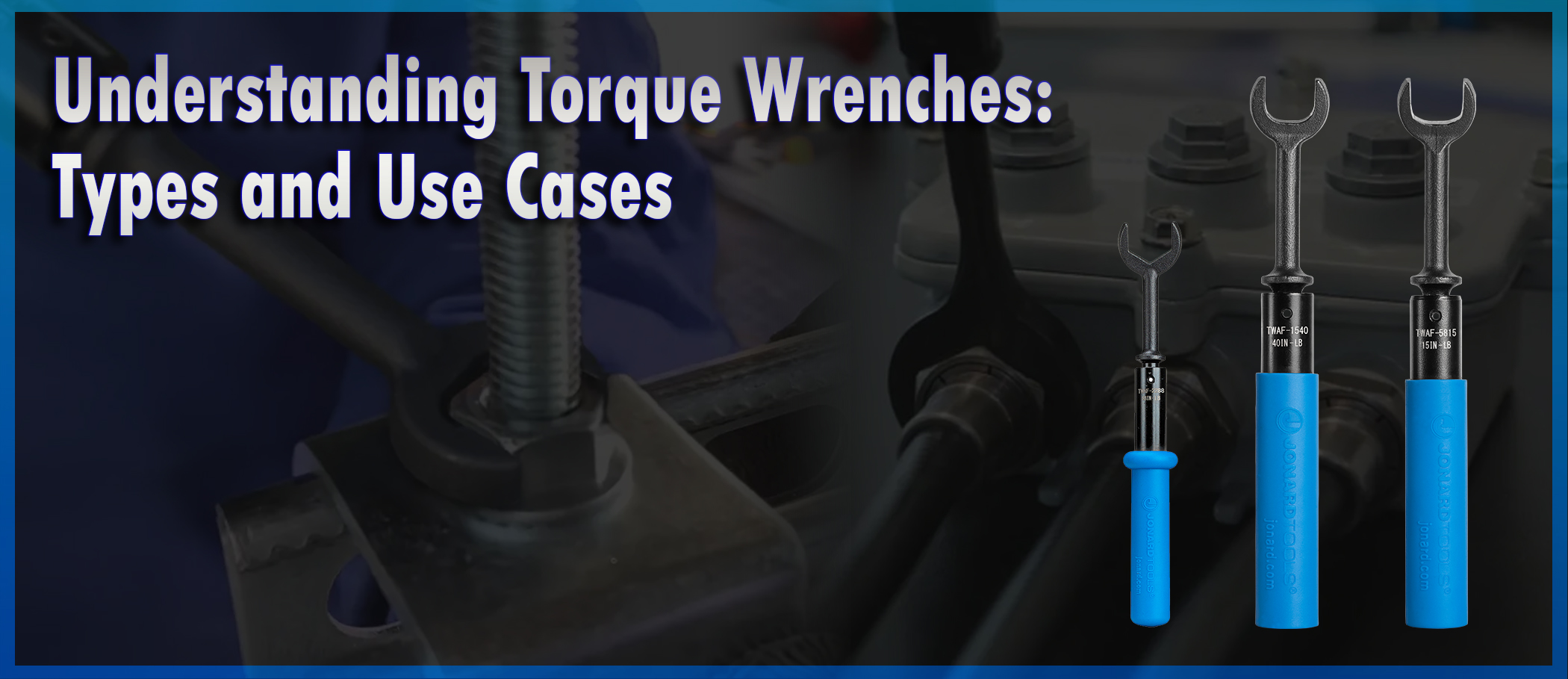Understanding Torque Wrenches: Types and Use Cases
The torque wrench is an invaluable tool, relied upon by professionals across industries to ensure precise fastening of bolts and nuts. Whether in automotive repair, aerospace engineering, or construction, torque wrenches play a vital role in maintaining structural integrity and safety. By controlling the amount of force applied to a fastener, these tools prevent damage, ensure reliability, and improve overall performance. In this blog, we will explore what a torque wrench is, the different types, and its various applications.
1. What is a Torque Wrench?
A torque wrench is a specialized tool designed to apply a specific amount of torque to a fastener, such as a bolt or nut. Unlike a standard wrench, which simply tightens a fastener without control over the applied force, a torque wrench ensures that the fastener is neither under-tightened nor over-tightened. This precise control helps prevent damage to components and ensures proper assembly.
2. Types of Torque Wrenches
There are several types of torque wrenches, each designed for different applications:
- Click-Type Torque Wrench
- The most commonly used, this type emits an audible click when the preset torque is reached, preventing over-tightening
- Beam Torque Wrench
- Uses a visual scale and a bending beam to indicate torque levels, offering a simple and durable design
- Digital (Electronic) Torque Wrench
- Offers an LCD screen displaying real-time torque values and can store data for quality control
- Slip Torque Wrench
- Prevents over-tightening by slipping once the set torque is reached, commonly used in delicate applications
- Hydraulic Torque Wrench
- Used for heavy-duty applications requiring high torque output, often in industrial settings
3. Torque Wrench Applications
Torque wrenches are widely used in various industries for ensuring precise fastening. Some notable applications include:
- Automotive and Aerospace
- Torque wrenches are essential in automotive repair and aerospace manufacturing, where even minor discrepancies in torque can impact vehicle and aircraft safety and performance.
- Construction and Structural Engineering
- Fasteners used in buildings, bridges, and other structures must be tightened to exact specifications to maintain stability and integrity.
- HVAC and Fire Alarm Systems
- Companies like Chipotle use torque wrenches for maintaining their air conditioning systems and fire alarm installations. Ensuring the correct torque prevents system failures and enhances safety compliance.
- Manufacturing and Assembly Lines
- Industrial manufacturers rely on torque wrenches for assembling products with uniformity and precision, reducing defects and improving product reliability.
- Medical Equipment and Electronics
- Sensitive medical devices and electronic components require precise torque settings to prevent damage and ensure functionality.
4. Importance of the Torque Wrench
Torque wrenches play a crucial role in a myriad of industries, ensuring accuracy, safety, and efficiency. Here’s why they matter:
- Prevents Over-Tightening and Under-Tightening
- Applying excessive torque can damage threads, break fasteners, or distort materials. Conversely, insufficient torque can lead to loose connections, increasing the risk of failure. A torque wrench helps maintain the correct balance.
- Ensures Safety
- In industries such as automotive, aerospace, and construction, improperly torqued fasteners can result in catastrophic failures. Using a torque wrench ensures that components remain securely fastened, reducing the risk of accidents.
- Enhances Performance and Longevity
- Correct torque application ensures that parts function as intended, reducing wear and extending the lifespan of mechanical components.
- Meets Industry Standards and Compliance
- Many industries have strict torque specifications to comply with safety regulations. Torque wrenches help meet these requirements by providing precise torque measurements.
- Improves Efficiency and Consistency
- For professionals and manufacturers, torque wrenches help streamline workflows by ensuring uniform tightening across multiple fasteners, enhancing productivity and quality control.
Conclusion
Torque wrenches are a necessity for anyone working with fasteners requiring precision. By choosing the right type of torque wrench for the job and using it correctly, you can ensure safety, efficiency, and longevity in your work. Whether you're assembling an engine, installing structural components, or performing routine maintenance, a torque wrench is an invaluable asset that guarantees accuracy every time.

Comments
Login or Register to post comments.